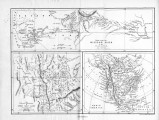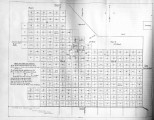| OCR Text |
Show CHAP. VI. CORPORATION OF GREAT SALT LAKE CITY. 315 the pale of their own faith." If the newly-arrived judge fails, within the first week, to wait upon Mr. President, he or his may expect to be the subject of an offensive newspaper article, if another live among.his co-religionists at Camp Floyd, he is convicted of cliqueism, and is forthwith condemned as a foe. Whatever proceeds from the federal government is and must be distasteful to them; to every address they reply, " To your tents, 0 Israel!" " Their nobles shall be of themselves, and their governor shall proceed from the midst of them," is the shaft which they level against the other party, and which recoils upon themselves. The result is that if the territorial judiciary sentences a criminal, he appeals to the federals, and at once obtains cassation -and vice versd. The usual procedure in criminal cases is to make oath before a magistrate, who thereupon commands the marshal to take the accused into custody, and "them safely keep," so that he may produce their bodies before the first sessions of the United States District Courts; if the magistrate be a Mormon, he naturally refuses to prosecute and persecute a brother Saint-and vice versd. Thus many notorious offenders, whom the Mormons would, for their own sakes, willingly see cut off from the congregation-in simple words, hung-escape with impunity after the first excitement has settled down: the most terrible crimes are soon forgotten in the party fight, and in the race to "go ahead;" after five years they become pabulum for the local antiquary. I have thus attempted, with feeble hand, to divide the blame between both the. great'contending parties, and may fairly, I hope, expect to be unanimously rejected by both. The ordinance to incorporate Great Salt Lake City was approved by the General Assembly of the State of Desere't on the 19th of January, 1851, and the body municipal was constituted, like Fillmore, Ogden, and other cities in the Territory. The City Council consists of a mayor, four aldermen, and one common councilor per ward-formerly there were but nine; they are elected by votes, with the usual qualifications; are sworn or affianced to support the federal and territorial Constitution, and retain office for two years. They collect the taxes, which, however, must not exceed L50 per cent, per annum upon the assessed value of all taxable property, real and personal.* They appoint * The property-tax, like tithes, forming the Church funds and the revenue of the civil government, are general; the octroi ($20 for 100 lbs. of every thing entering the Territory from the east, and $25 from the west) and water-tax are local, and confined to towns. I can not find any other recognized imposts. The anti-Mormons declare that the Saints are overburdened with taxation. The Saints assert that their burden is light, especially when compared with the Mormons' taxation of the Atlantic cities, which averages from double to treble that of London and Paris -a little drawback to Liberty when she must be bought for her weight in gold. In the Auditor's report accompanying the Governor's Message of 1860, there are some items of general interest to people outside, as well as to those in the Territory. The report states that " the total valuation, of property assessed in the Territory for |



















































































































































































































































































































































































































































































































































































































